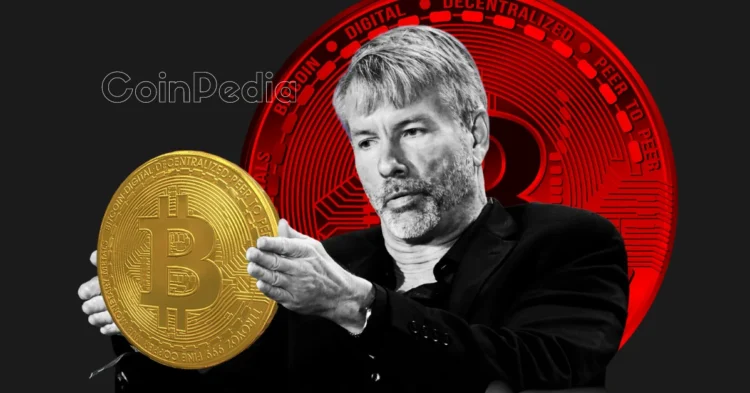In the ever-evolving landscape of global finance, Michael Saylor, the chairman of MicroStrategy, has introduced a thought-provoking concept. He proposes that by adopting Bitcoin as a strategic reserve, the United States could potentially generate up to $81 trillion in economic benefits. This bold idea, if implemented, might position the U.S. as a frontrunner in the global digital economy. However, it has sparked a heated debate, with some critics arguing that such a move could undermine the U.S. dollar and adversely affect the economy.
US Could Unlock $81 Trillion With Bitcoin
Michael Saylor envisions that by integrating Bitcoin into the national reserve, the U.S. could capitalize on the cryptocurrency’s inherent scarcity and increasing global value. He suggests that a well-structured Bitcoin policy could enhance the strength of the U.S. dollar, alleviate national debt, and invigorate the economy by generating trillions in added value. According to Saylor, this strategic move could see global digital capital markets balloon from a current valuation of $2 trillion to a staggering $280 trillion, with the U.S. capturing a substantial portion of this growth.
In his scenario, the Bitcoin reserve could unlock financial avenues worth between $16 trillion to $81 trillion for the U.S. Treasury. Such an influx could potentially open vast opportunities for American enterprises, creating a robust economic environment. Moreover, some analysts speculate that such a strategic pivot could propel Bitcoin’s price to as high as $500,000, further solidifying its role in the financial ecosystem.
Peter Schiff Criticizes Saylor’s Proposal
Despite the optimism surrounding Saylor’s vision, it has not been without its detractors. Economist and renowned Bitcoin skeptic Peter Schiff has been vocal in his criticism of the proposal, dismissing it as fundamentally flawed. Schiff contends that adopting Bitcoin as a national reserve would be detrimental to the U.S. economy. He argues that it could weaken the dollar, exacerbate national debt, and lead to economic instability.
According to Schiff, such a move would strip businesses of their power, hinder economic growth, and ultimately destroy value. His skepticism stems from a long-standing belief that Bitcoin is too volatile and unpredictable to serve as a dependable financial asset. Instead, Schiff continues to advocate for gold as a safer and more reliable investment option.
Bitcoin’s Role in the Future
Saylor’s bold proposition adds a new dimension to the ongoing global discourse regarding Bitcoin’s potential role in national economies. While smaller nations like El Salvador have embraced Bitcoin, the prospect remains contentious for larger economies such as the U.S. The debate encapsulates broader questions about the future of digital currencies in an increasingly interconnected world.
As the conversation around Bitcoin’s viability as a strategic reserve continues, it underscores the broader questions about the future role of digital currencies in global finance. The outcome of this debate could shape economic policies and strategies in the years to come, influencing how countries harness the potential of cryptocurrencies to drive growth and innovation.










